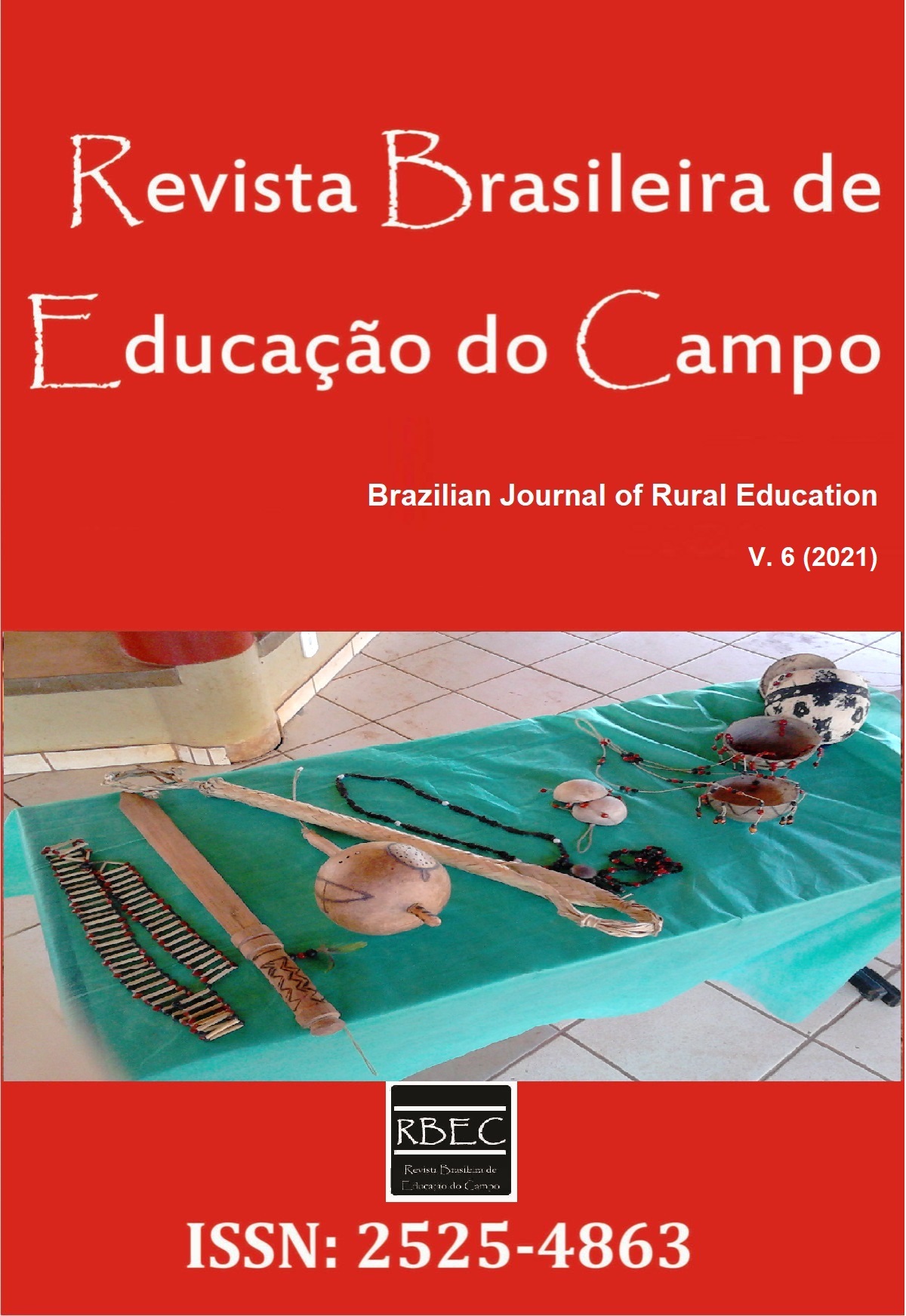Evaluation monitoring and accompaniment of the training process in RTC: theoretical-practical and operational aspects
DOI :
https://doi.org/10.20873/uft.rbec.e13296Mots-clés :
education in the Tocantins, Rede ColaborAção Tocantins (RCT), evaluation monitoring and accompaniment of municipal education, theoretical and practical aspects.Résumé
ABSTRACT. The article at stake approaches thematic related to the evaluation, monitoring and accompaniment of the Rede ColaborAção Tocantins (RCT) developed in the pandemic period. The present reflection has objective to problematize the instrumental conception of the education and the evaluation by means of theoretician-philosophical reflection, which understands the education as social práxis, based on principles of the democratic management and the substantive formation. The study which originated this text was carried through in the perspective critical-dialectic, starting from the empirical reality understood as complex reality, contradictory and mediatized by multiples determinative. The study provided - as a theoretical-practical result – the explanation of the philosophical, political and methodological foundations of evaluation, monitoring and follow-up in the instrumental and substantive perspectives, as well as this enabled the composition of a set of criteria and procedures applicable to training in municipal education management. The discussion includes, in addition to the theoretical and practical aspects of management, evaluation, monitoring and accompaniment, the practical operational aspects of the training process.
Téléchargements
Références
Carvalho, R. F. (2011). O processo de gestão e participação na universidade: limites, desafios e possibilidades na UFT (Tese de Doutorado). Universidade Federal de Goiás, Goiânia.
Carvalho, R. F. (2016). A constituição do Estado brasileiro na tensão entre o domínio e a direção de classe: a educação como arena ético-política. In Vilas Bôas, J. P. S., Neto, L. F., & Perius, O. (Orgs.). Filosofia em Debate: questões de ética, educação e política (pp. 297-240). Florianópolis: Nefiponline.
Chauí, M. S. (1980). Ideologia e educação. Educação e Sociedade. São Paulo: Cortez/CEDES.
Chauí, M. S. (1999, 9 de maio). A Universidade Operacional. Folha de São Paulo, caderno mais (5), 3.
Contera, C. (2002). Modelos de avaliação da qualidade da educação superior. In Dias Sobrinho, J., Ristoff, D. I. (Org.). Avaliação de democrática: para uma universidade cidadã (pp. 119-144). Florianópolis: Insular.
Dias Sobrinho, J. (2003). Avaliação: políticas educacionais e reformas da educação superior. São Paulo: Cortez.
Dias Sobrinho, J. (2005). Avaliação como instrumento da formação cidadã e do desenvolvimento da sociedade democrática: por uma ético-epistemologia da avaliação. In Ristoff, D., & Almeida Júnior, V. P. (Orgs.). Avaliação participativa: perspectivas e desafios (pp. 15-38). Brasília: Inep.
Dias Sobrinho, J., & Ristoff, D. I. (Orgs.). (2002). Avaliação de democrática: para uma universidade cidadã. Florianópolis: Insular.
Gramsci, A. (2000). Cadernos do Cárcere. Rio de Janeiro: Civilização Brasileira.
RCT/TO. (2020a). Caderno I. Gestão da Educação: validação das ações administrativas e pedagógico-curriculares e finalização do ano letivo de 2020. Palmas/TO, Undime.
RCT/TO. (2020b). Caderno 2. Gestão da educação na conjuntura da pandemia – Com a palavra, cursistas e formadores. Palmas/TO, Undime.
RCT/TO. (2021). Caderno 3. Gestão das redes e dos sistemas educacionais: afirmação dos direitos à vida e a educação no retorno às atividades escolares em 2021. Palmas/TO, Undime.
Sander, B. (1995). Gestão da educação na América Latina: construção e reconstrução do conhecimento. Campinas: Autores Associados.
Téléchargements
Publié-e
Comment citer
Numéro
Rubrique
Licence
Proposal for Copyright Notice Creative Commons
1. Policy Proposal to Open Access Journals
Authors who publish with this journal agree to the following terms:
A. Authors retain copyright and grant the journal right of first publication with the work simultaneously licensed under the Creative Commons Attribution License that allows sharing the work with recognition of its initial publication in this journal.
B. Authors are able to take on additional contracts separately, non-exclusive distribution of the version of the paper published in this journal (ex .: publish in institutional repository or as a book), with an acknowledgment of its initial publication in this journal.
C. Authors are permitted and encouraged to post their work online (eg .: in institutional repositories or on their website) at any point before or during the editorial process, as it can lead to productive exchanges, as well as increase the impact and the citation of published work (See the Effect of Open Access).














